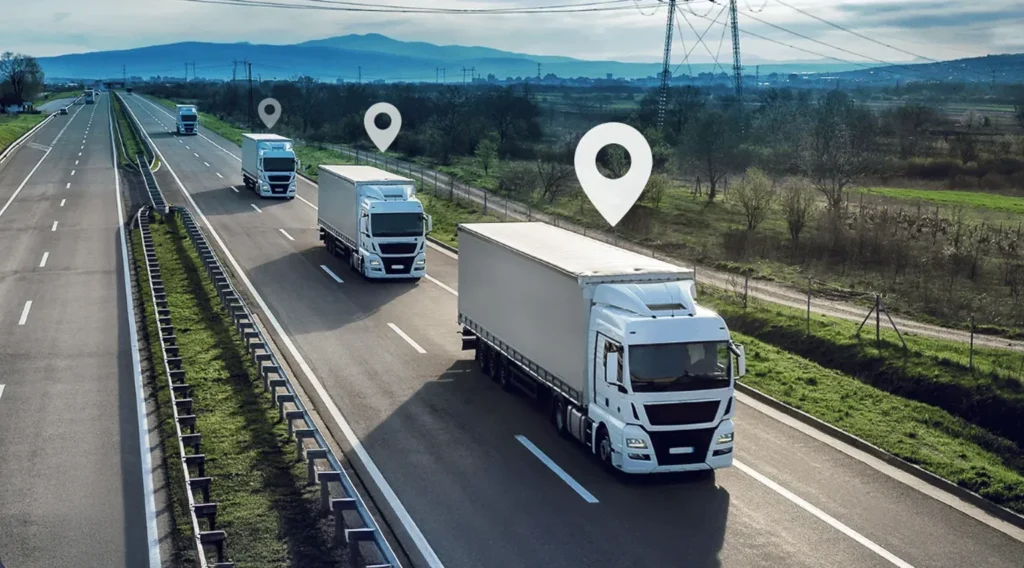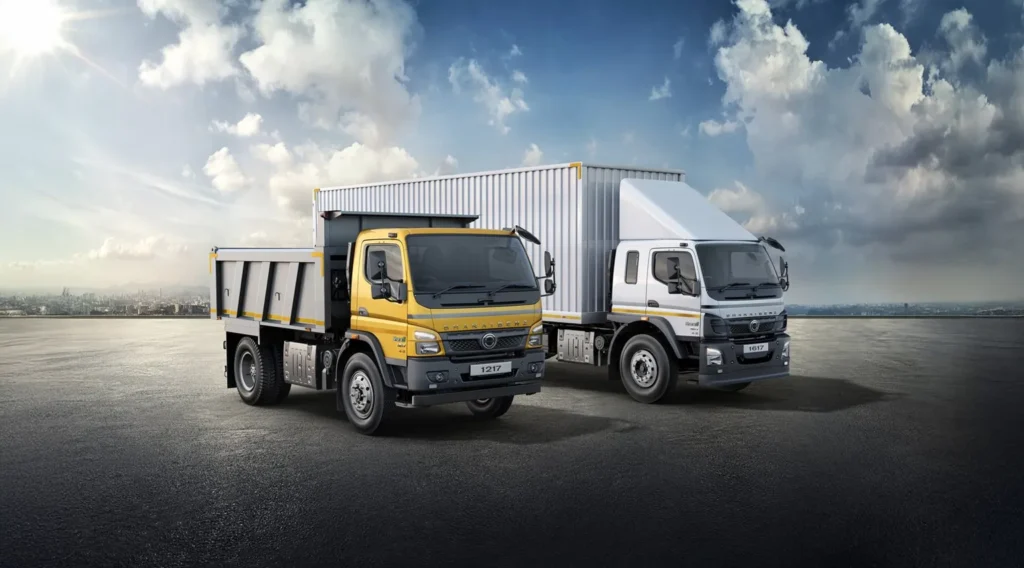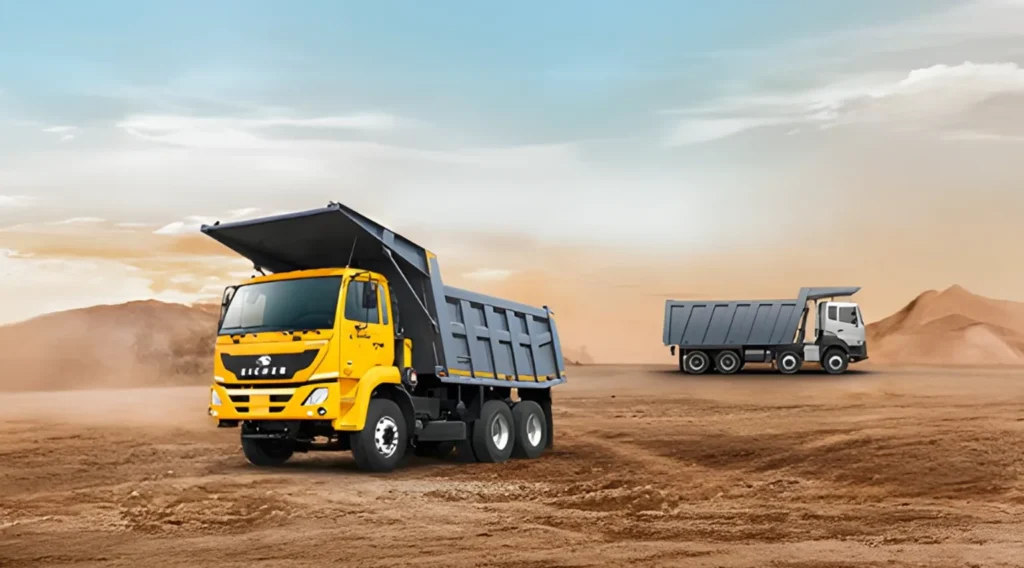The logistics and transportation industry in India is evolving rapidly, fueled by digital transformation and growing demand from manufacturing, e-commerce, and retail sectors. One of the most significant advancements in this sector is the rise of truck load booking platforms, which have streamlined the traditional, often inefficient, method of arranging cargo transport.
Simultaneously, understanding the types of trucks in India is crucial for businesses and transporters aiming to maximize efficiency and cost-effectiveness. Each type of truck serves a specific function based on load weight, cargo type, and travel distance.
This guide will provide a comprehensive overview of how truck load booking works and break down the major truck categories operating in India, helping you make better decisions for your logistics needs.
 Truck load booking refers to the process of reserving or scheduling a truck to carry goods from one location to another. Traditionally, this process relied on phone calls, middlemen, and transport brokers, making it time-consuming and often unreliable.
With the advent of digital solutions, truck load booking has become significantly more convenient and efficient. Online platforms now connect shippers with truck owners or fleet operators in real time. Whether you are a small business moving goods within a city or a logistics provider managing long-haul transport, these platforms simplify the process by offering transparent pricing, availability, and tracking features.
Truck load booking refers to the process of reserving or scheduling a truck to carry goods from one location to another. Traditionally, this process relied on phone calls, middlemen, and transport brokers, making it time-consuming and often unreliable.
With the advent of digital solutions, truck load booking has become significantly more convenient and efficient. Online platforms now connect shippers with truck owners or fleet operators in real time. Whether you are a small business moving goods within a city or a logistics provider managing long-haul transport, these platforms simplify the process by offering transparent pricing, availability, and tracking features.
 Convenience:
Book a truck from anywhere using your mobile phone or computer—no need to visit transport hubs or call agents.
Real-Time Access:
Find available trucks instantly based on your cargo size, type, and route.
Cost-Effective:
Eliminate intermediaries and get competitive pricing directly from verified transporters.
Efficiency:
Faster load-matching reduces idle time for transporters and ensures timely delivery for shippers.
Tracking and Transparency:
Most platforms provide GPS tracking, digital documentation, and customer support, enhancing transparency and reliability.
Convenience:
Book a truck from anywhere using your mobile phone or computer—no need to visit transport hubs or call agents.
Real-Time Access:
Find available trucks instantly based on your cargo size, type, and route.
Cost-Effective:
Eliminate intermediaries and get competitive pricing directly from verified transporters.
Efficiency:
Faster load-matching reduces idle time for transporters and ensures timely delivery for shippers.
Tracking and Transparency:
Most platforms provide GPS tracking, digital documentation, and customer support, enhancing transparency and reliability.
 These trucks are compact, fuel-efficient, and ideal for intra-city or short-distance transport. They are used for delivering FMCG goods, groceries, e-commerce parcels, and other lightweight cargo.
Popular Models: Tata Ace, Mahindra Supro, Ashok Leyland Dost
Load Capacity: Up to 1.5 tons
These trucks are compact, fuel-efficient, and ideal for intra-city or short-distance transport. They are used for delivering FMCG goods, groceries, e-commerce parcels, and other lightweight cargo.
Popular Models: Tata Ace, Mahindra Supro, Ashok Leyland Dost
Load Capacity: Up to 1.5 tons
 The integration of technology has revolutionized the way logistics businesses operate. Here’s how:
Mobile Apps and Web Portals: Provide instant access to available trucks and loads.
Digital Payments: Ensure secure, fast transactions without the need for cash.
Route Optimization: GPS and AI help plan the most efficient delivery routes.
Real-Time Alerts: Track trucks, delays, and ETA on the go.
Document Management: Upload and manage e-PODs (Proof of Delivery), invoices, and consignment notes digitally.
These features not only save time but also minimize human error, making logistics smoother and more scalable.
The integration of technology has revolutionized the way logistics businesses operate. Here’s how:
Mobile Apps and Web Portals: Provide instant access to available trucks and loads.
Digital Payments: Ensure secure, fast transactions without the need for cash.
Route Optimization: GPS and AI help plan the most efficient delivery routes.
Real-Time Alerts: Track trucks, delays, and ETA on the go.
Document Management: Upload and manage e-PODs (Proof of Delivery), invoices, and consignment notes digitally.
These features not only save time but also minimize human error, making logistics smoother and more scalable.
What Is Truck Load Booking?
 Truck load booking refers to the process of reserving or scheduling a truck to carry goods from one location to another. Traditionally, this process relied on phone calls, middlemen, and transport brokers, making it time-consuming and often unreliable.
With the advent of digital solutions, truck load booking has become significantly more convenient and efficient. Online platforms now connect shippers with truck owners or fleet operators in real time. Whether you are a small business moving goods within a city or a logistics provider managing long-haul transport, these platforms simplify the process by offering transparent pricing, availability, and tracking features.
Truck load booking refers to the process of reserving or scheduling a truck to carry goods from one location to another. Traditionally, this process relied on phone calls, middlemen, and transport brokers, making it time-consuming and often unreliable.
With the advent of digital solutions, truck load booking has become significantly more convenient and efficient. Online platforms now connect shippers with truck owners or fleet operators in real time. Whether you are a small business moving goods within a city or a logistics provider managing long-haul transport, these platforms simplify the process by offering transparent pricing, availability, and tracking features.
Benefits of Online Truck Load Booking
Types of Trucks in India
India’s road logistics network is powered by a variety of trucks designed to meet the diverse needs of businesses. Understanding the types of trucks in India helps in selecting the right vehicle for a given cargo load, thereby improving logistics planning and cost control. Here are the major truck categories based on use and load capacity:Mini Trucks (Light Commercial Vehicles – LCVs)
 These trucks are compact, fuel-efficient, and ideal for intra-city or short-distance transport. They are used for delivering FMCG goods, groceries, e-commerce parcels, and other lightweight cargo.
Popular Models: Tata Ace, Mahindra Supro, Ashok Leyland Dost
Load Capacity: Up to 1.5 tons
These trucks are compact, fuel-efficient, and ideal for intra-city or short-distance transport. They are used for delivering FMCG goods, groceries, e-commerce parcels, and other lightweight cargo.
Popular Models: Tata Ace, Mahindra Supro, Ashok Leyland Dost
Load Capacity: Up to 1.5 tons
Pick-Up Trucks and Tempo Trucks
Larger than mini trucks, these vehicles offer more space and are suited for medium-weight loads. Widely used by wholesalers, small industries, and retailers. Load Capacity: 1.5 – 4 tonsMedium Duty Trucks
These trucks are suitable for longer intercity routes and are often used to transport construction materials, electronics, and textiles. Popular Examples: Eicher Pro 3015, Tata 709 Load Capacity: 4 – 10 tonsHeavy Duty Trucks
The backbone of long-haul transportation in India, these trucks are designed to carry heavy and bulky items over long distances. Commonly used in manufacturing, mining, and bulk commodity transport. Popular Models: Tata LPT 1618, Ashok Leyland 2518 Load Capacity: 10 – 25 tonsMulti-Axle Trucks and Trailers
These are specialized trucks with multiple axles used for transporting extremely heavy loads such as steel, cement, industrial machinery, or fuel. Load Capacity: 25 tons and aboveContainer Trucks
These trucks feature enclosed containers to protect goods from weather and theft. They’re ideal for transporting sensitive or high-value items like electronics, pharmaceuticals, and perishable goods. Types: 20-feet and 32-feet containersRefrigerated Trucks
Also known as reefer trucks, these are equipped with temperature control and are essential for transporting perishable items like dairy, meat, and vegetables.Matching Cargo with the Right Truck
To get the most out of your logistics operations, it’s crucial to match your load type with the appropriate truck. Choosing the wrong truck can lead to increased fuel consumption, cargo damage, or regulatory issues due to overloading. Here’s a simple decision flow: Light Goods for City Delivery? → Go for Mini Trucks or LCVs Retail Supplies Across Cities? → Use Medium Duty Trucks Bulk Commodities or Manufacturing Goods? → Opt for Heavy Duty or Multi-Axle Trucks Perishable Items? → Choose Refrigerated Trucks Sensitive Cargo? → Book a Container Truck A digital truck load booking platform can automate this matching process, recommending suitable vehicles based on your cargo details.The Role of Technology in Modern Trucking
 The integration of technology has revolutionized the way logistics businesses operate. Here’s how:
Mobile Apps and Web Portals: Provide instant access to available trucks and loads.
Digital Payments: Ensure secure, fast transactions without the need for cash.
Route Optimization: GPS and AI help plan the most efficient delivery routes.
Real-Time Alerts: Track trucks, delays, and ETA on the go.
Document Management: Upload and manage e-PODs (Proof of Delivery), invoices, and consignment notes digitally.
These features not only save time but also minimize human error, making logistics smoother and more scalable.
The integration of technology has revolutionized the way logistics businesses operate. Here’s how:
Mobile Apps and Web Portals: Provide instant access to available trucks and loads.
Digital Payments: Ensure secure, fast transactions without the need for cash.
Route Optimization: GPS and AI help plan the most efficient delivery routes.
Real-Time Alerts: Track trucks, delays, and ETA on the go.
Document Management: Upload and manage e-PODs (Proof of Delivery), invoices, and consignment notes digitally.
These features not only save time but also minimize human error, making logistics smoother and more scalable.